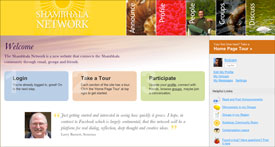Using Mindfulness to Understand Stress
By Brett Ferrigan
It’s interesting that when we encounter stress–whether from our new smart phone not cooperating, difficulty with a relationship or an unexpected and expensive car repair–our first response is usually not curiosity. Oftentimes we’d like to avoid it or push it away as far as possible. But taking an interest in stress can yield surprising benefits.
Why would learning about stress be a good idea?
Imagine a situation where you really need to be at the top of your game. It could be an encounter with your boss or co-worker, a delicate subject with your partner, or having a reasonable and caring conversation with your teenager. Things start out fine and you have the best of intentions, but somehow your buttons get pushed, things escalate and you find yourself breathing heavily, palms sweating, mind racing and you open your mouth to speak …. Unfortunately, when you need your most advanced skills of reason and diplomacy your body and brain and nervous system have shifted to the Neanderthal logic of fight or flight. What happens next is often not our best response.
The good news is that this ingrained pattern–which enters almost every situation and encounter with the question, “What’s wrong or dangerous here?” has kept us human beings alive so far. Unfortunately, despite the absence of threatening tigers and bears in modern-day life, it’s easy for this instinctive response to over-react–like an over developed muscle–which can leave us feeling overwhelmed, inadequate or just, plain scared.
Common themes for stress are relationships, money, work, social situations and world events. However, what creates a stressful situation for you may not be stressful for someone else. Each of us has a personal landscape, that if we take the time to explore, can result in feeling more comfortable, more relaxed and more confident in our world.
How do we begin?
A good way to begin is adopting an attitude of non-judgemental curiosity. Here, mindfulness practice–simply paying attention to what is happening–can be an invaluable tool. Staying present with our experience and learning how to better respond to stress can be a tremendous gift of self-compassion and kindness that yields innumerable benefits for us and for those we care about.
One of the better-known, formalized programs for learning about stress is Mindfulness Based Stress Reduction. MBSR, now offered at Palm Beach Shambhala, uses the gentleness and accuracy of mindfulness practices to guide participants in an 8-week exploration of both stress and relaxation.
Our next 8-week MBSR course begins with free classes at Palm Beach Shambhala. If you think it might be helpful to learn more about stress–come join us!

